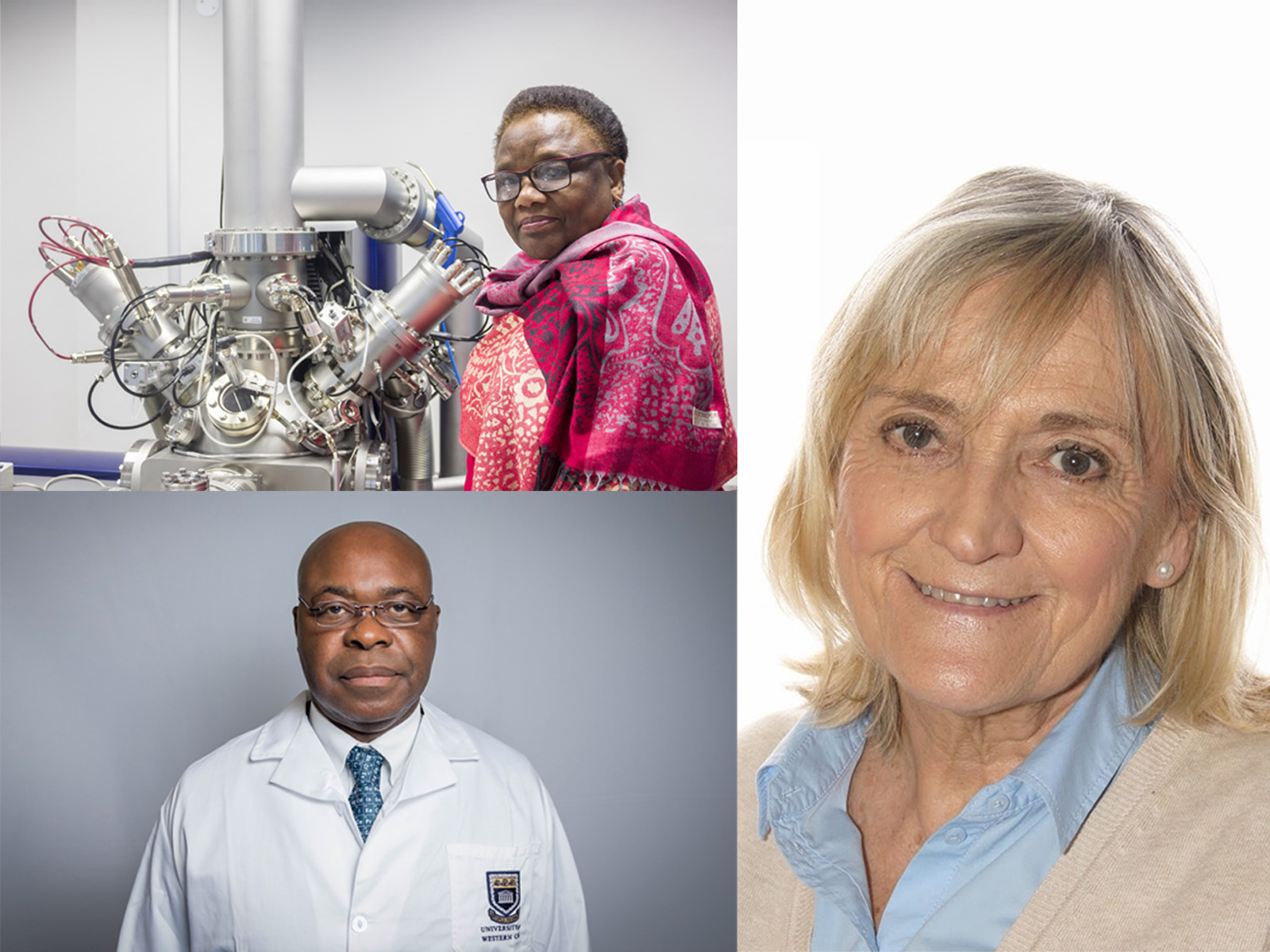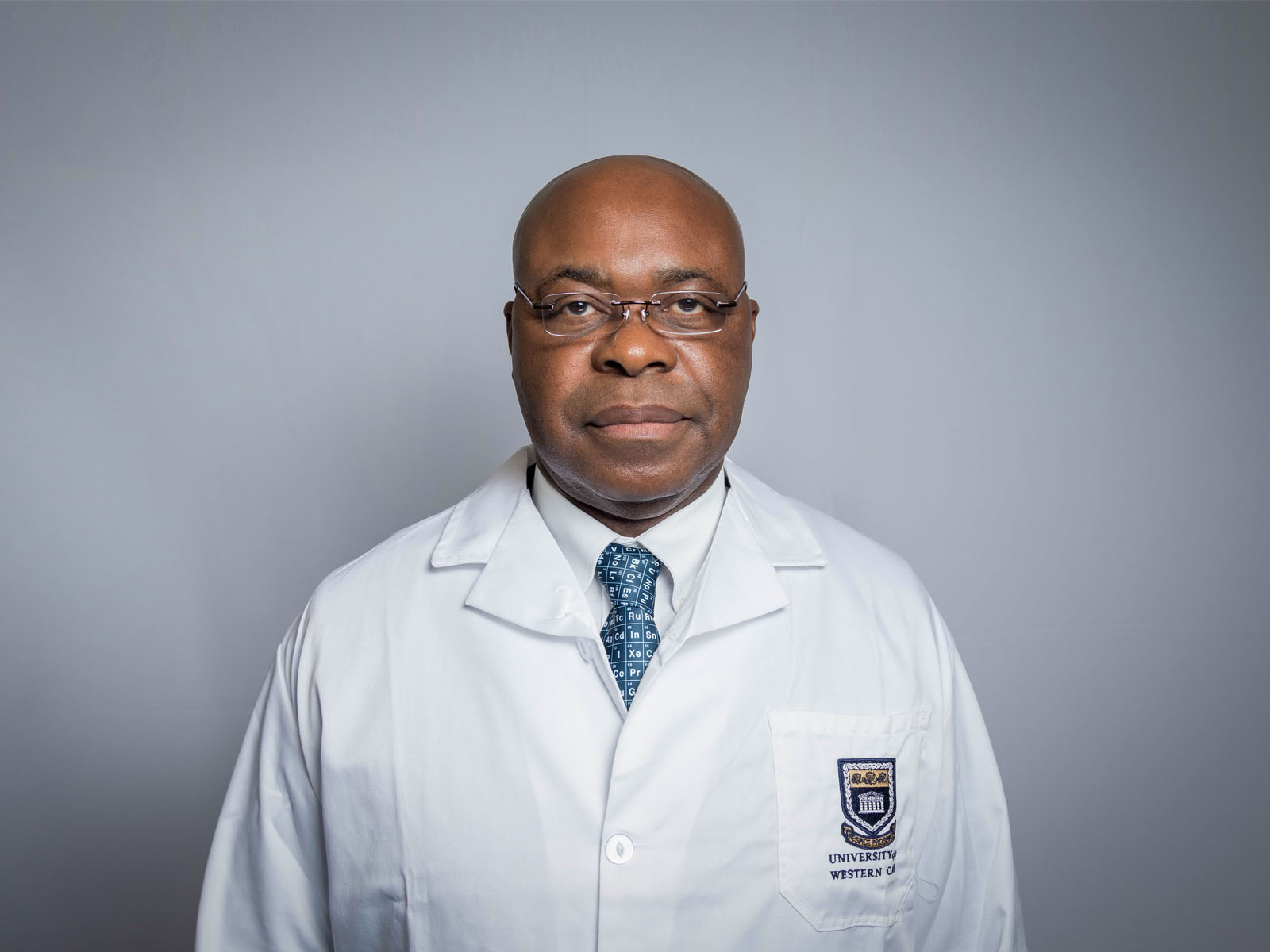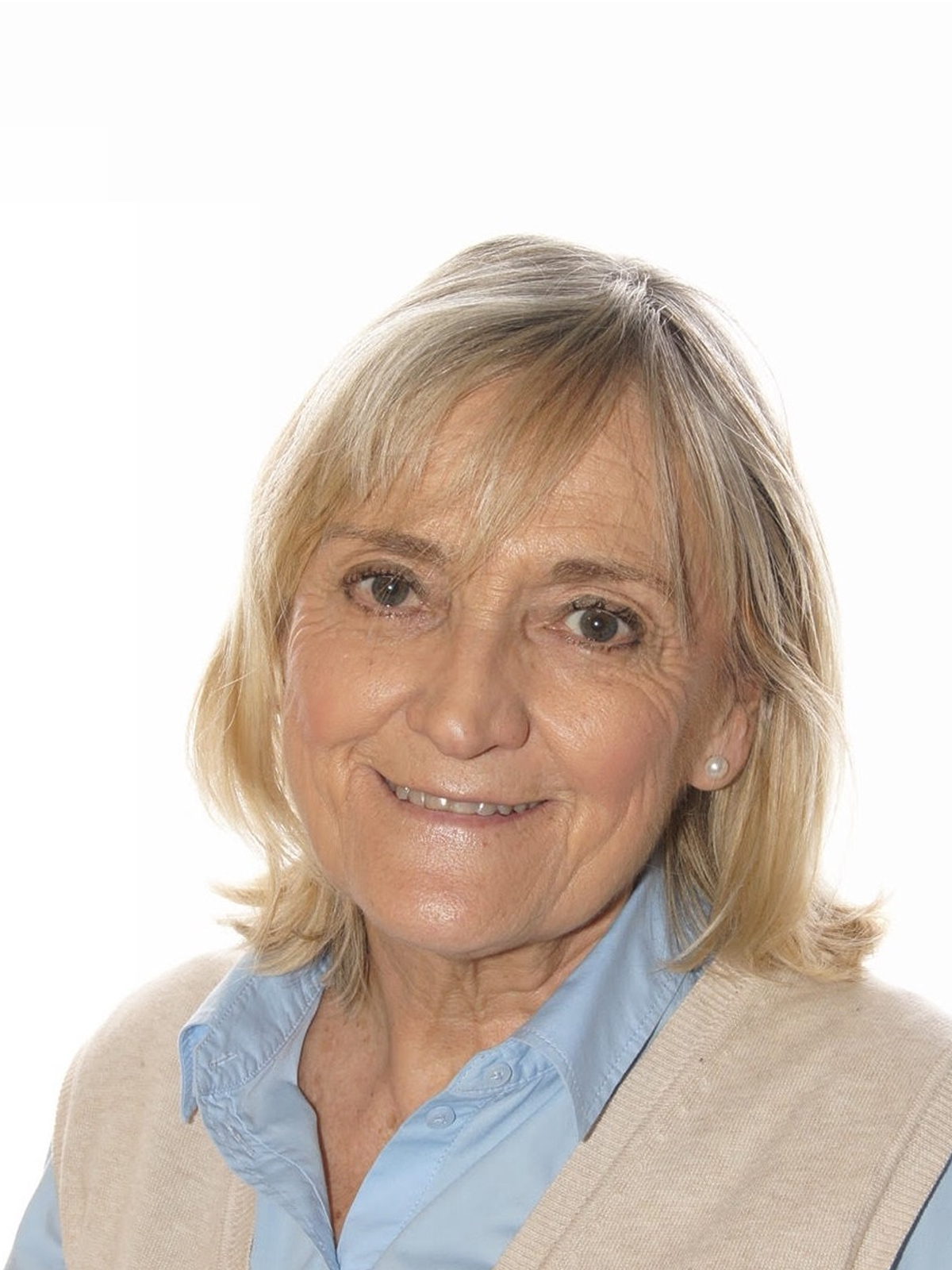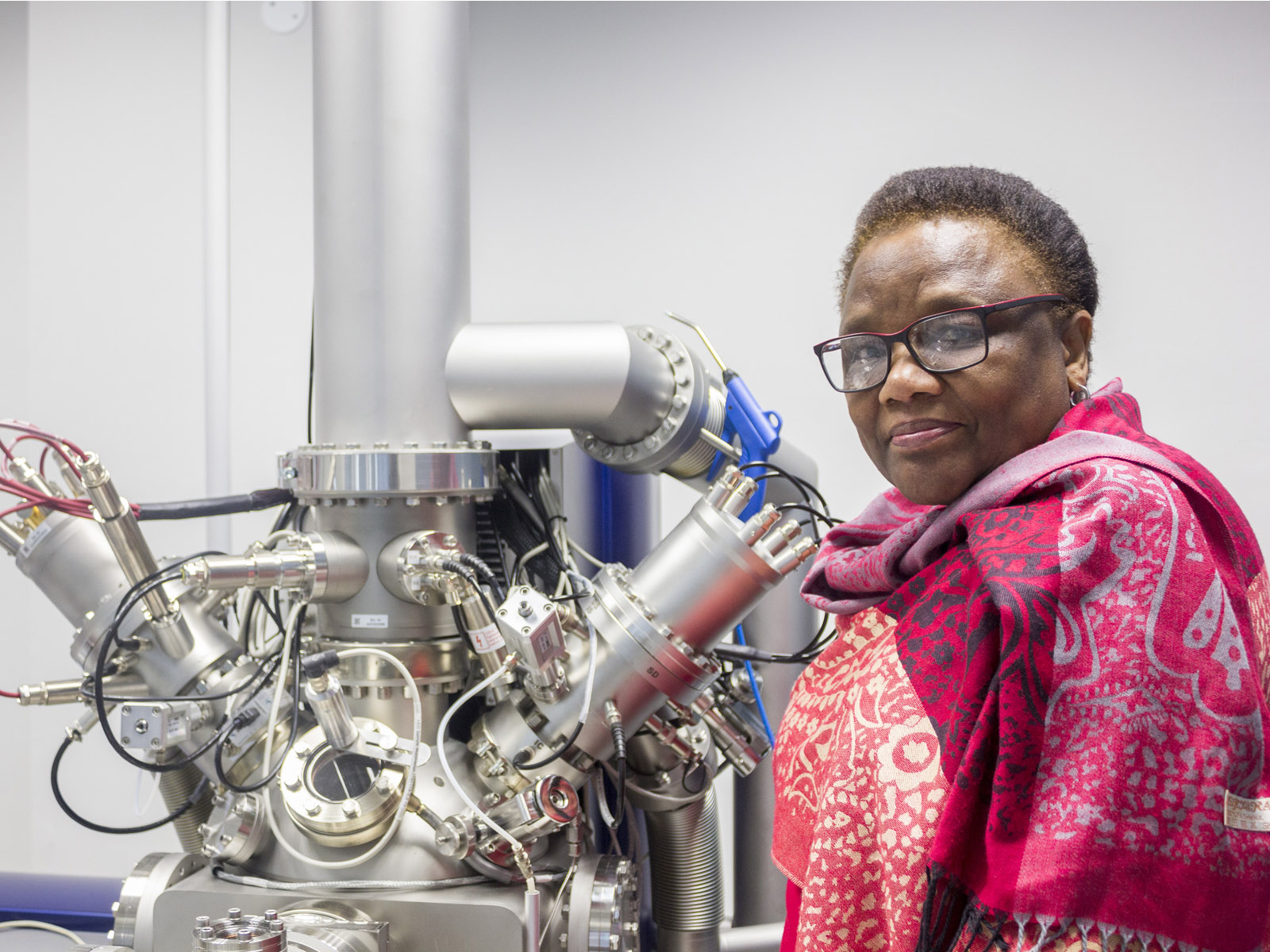Announcing our new Honorary Fellows

Upper left: Tebello Nyokong. Lower left: Emmanuel Iwuoha. Right: Pilar Goya Laza Picture: Images supplied
Every year, the Royal Society of Chemistry welcomes a selection of leading figures from our community as Honorary Fellows. One of our founding by-laws states:
“The Board of Trustees may admit to the Society as an Honorary Fellow any person who is distinguished in the science or profession of chemistry or whom the Board of Trustees may consider it desirable to admit as an Honorary Fellow for any other sufficient reason”.
In the past, we have welcomed renowned and influential people with a diverse range of backgrounds and experiences, from recent additions like Nobel Laureates Professors Frances Arnold and John B. Goodenough to long-standing members of our community and supporters of science communication, including Professor Sir Martyn Poliakoff, Bill Bryson and Heston Blumenthal.
Our 2020 intake of candidates invited and accepted to become Honorary Fellows are:
- Professor Emmanuel I Iwuoha CSci CChem FRSC, Senior Professor of the South African Research Chairs Initiative (Tier 1), University of the Western Cape, South Africa
- Professor Pilar Goya Laza, Research Professor, Institute for Medicinal Chemistry, Madrid and Vice President of the European Chemical Society (EuChemS)
- Professor Tebello Nyokong, Distinguished Professor of Medicinal Chemistry and Nanotechnology, Rhodes University, South Africa

Professor Emmanuel I. Iwuoha CSci CChem FRSC is an electrochemist and Professor in South Africa. His academic achievements are exceptional given the transformational landscape in South Africa that he has worked in over the last 20 years.
He has published over 250 papers and graduated over 60 PhD and 70 MSc students and established a world-leading sensor laboratory at the University of the Western Cape in Cape Town (this was the University for people of colour during the Apartheid era). He has been a FRSC since 1999, a Fellow of the African Academy of Science in 2018 and in addition to being on the Editorial board of journals such as Analytical Chemistry and Bioelectrochemistry he has advised South African and international Governments and organisations on a wide range of topics including energy storage and smart sensors. He has won several awards in South Africa and as stated is one of the highest ranked researchers in South Africa. He has given many invited and plenary talks and is without doubt an outstanding scientist and strong advocate for the chemical sciences. However, what distinguishes Iwuoha and makes his case for HonFRSC compelling is his training and support of African scientists at all levels in particular female scientists. Establishing world-class research facilities in a country emerging from Apartheid is no small achievement but the number of students who have gone on to take prominent positions in African institutes and companies is incredible. Their impact as role models and their contribution to scientific development and literacy is a huge legacy. Some examples of Professor Iwuoha’s impact on the chemical sciences are presented.

Professor Pilar Goya Laza continues to be an inspiration in her work for EuChemS and promotion of chemistry worldwide.
- PhD Universidad Complutense, Madrid,
- Alexander von Humboldt Fellowship, Konstanz, Germany
- Researcher Institute of Medicinal Chemistry, CSIC. Madrid
- Head of International Affairs, CSIC, 1991-6
- Director Institute of Medicinal Chemistry, 2005-11
- Chair Chemistry Committee Marie Curie Fellowships EU.
- Vice-President, Royal Spanish Chemical Society
- Vice-President, Save the Children, Spain
- Board Member European Federation for Medicinal Chemistry
- President Spanish Society of Medicinal Chemistry
- President European Chemical Society (2018-2020) and Vice President 2017 and 2021

Tebello Nyokong is one of the most distinguished scientists in Africa and is making huge strides with her laser-based alternative to regular chemotherapy.
As Professor of Medicinal Chemistry and Nanotechnology at Rhodes University in South Africa, she is a recipient of the Royal Society of Chemistry’s Distinguished Woman in Chemistry award. In 2009 she won the L’Oreal UNESCO award for women in science, and was the focus of a special motion passed in the South African National Assembly, recognising her role in the transformation of science in the country.
This has been a monumental journey for a woman who at eight years old, working as a shepherd when not at school, was told to pursue arts and humanities rather than science.